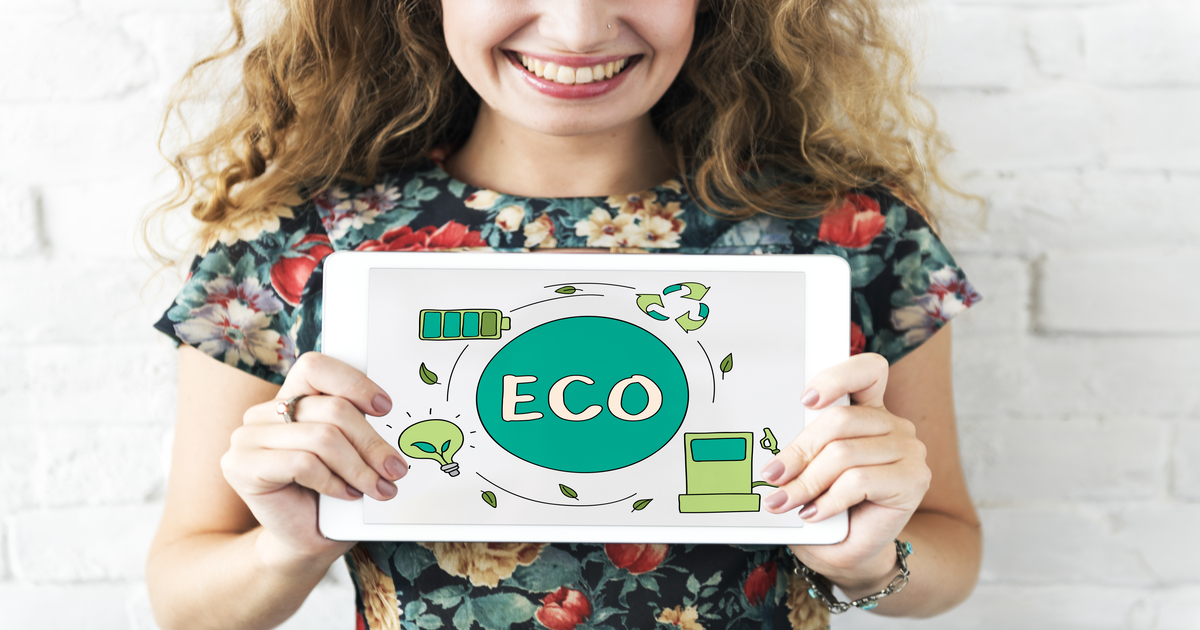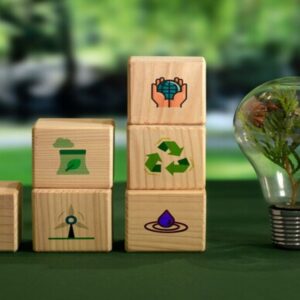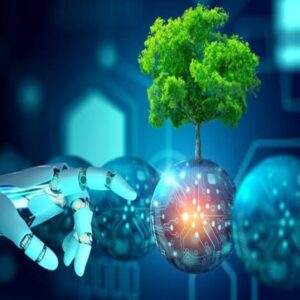Connecting the World Sustainably
We live in an era where technology intertwines with our daily lives, transforming the way we communicate, work, and even how we care for our planet. In an increasingly conscious world of the importance of sustainability, technological wonders are emerging, with the power to unite the global and the local, connecting societies in innovative and ecological ways.
It is undeniable that the search for sustainable solutions is an urgent need. Every day, we face environmental challenges that demand creative and practical responses. Fortunately, technology is playing a crucial role in this scenario, providing incredible advances ranging from clean energy to intelligent resource management.
Imagine a world where cities are centers of green innovation, where smart buildings not only save energy but also generate it. This vision is becoming a reality with the rise of sustainable architecture, incorporating technologies such as solar panels, water recycling systems, and eco-efficient materials. It is a step towards a future where our environmental footprints are minimized without compromising our lifestyle.
Another exciting advancement is the electric vehicle revolution. Goodbye, fossil fuels! Hello, sustainable mobility! With electric cars and shared bicycles gaining popularity, we are witnessing a transformation in how we move. This shift not only reduces air pollution but also alleviates pressure on natural resources, showing that technology can be an ally to the environment.
Looking to the sky, we find another technological marvel: drones. Not only devices for taking spectacular aerial photos, but also agents of positive change in sectors such as agriculture and conservation. Drones are being used to monitor crops, identify deforested areas, and even deliver supplies to remote regions. This practical application of technology not only increases efficiency but also contributes to environmental preservation.
Artificial intelligence (AI) is another major player in this story. Imagine having a personal assistant that optimizes your energy consumption habits, automatically adjusts your home temperature to save electricity, and even suggests sustainable practices for your daily life. AI not only makes our lives easier but also contributes to building a more sustainable world, where efficiency is the watchword.

Global connectivity also plays a vital role in promoting sustainability. Online platforms and social networks have the power to unite people from different parts of the world to share ideas, solutions, and inspirations. This global collaboration is essential to address environmental challenges that transcend borders.
However, while we celebrate these technological wonders, it is crucial to maintain a critical perspective. The rapid evolution of technology also brings ethical and security challenges that cannot be ignored. Data privacy, responsible disposal of electronic devices, and the potential negative impacts of automation are issues that require our attention.
In a global context, it is evident that technology is shaping our future in extraordinary ways. However, it is up to us to ensure that these innovations are applied ethically and sustainably. The pursuit of a more connected and green world should not sacrifice the fundamental principles of fairness, responsibility, and respect for the environment.
In conclusion, we are witnessing an era of technological transformation with the potential to connect the world sustainably. From smart buildings to electric vehicles and artificial intelligence, the technological wonders that emerge are shaping a future where innovation and sustainability go hand in hand. However, it is imperative that we proceed with caution, considering not only the benefits but also the ethical challenges that accompany this progress. Together, we can build a future where technology is a ally of nature, promoting a harmonious balance between societal advancement and the preservation of our precious planet.
The New Frontier: Technology and Sustainability in Harmony
As we delve deeper into this fascinating intersection between technology and sustainability, we encounter a new frontier filled with exciting possibilities. This intersection not only redefines our relationship with the environment but also presents innovative solutions to pressing challenges.
In the realm of energy, so-called smart cities are leading the revolution. Imagine a city where traffic lights automatically adjust waiting times based on real-time traffic flow, reducing congestion and, consequently, carbon emissions. This is the reality of smart cities, where technology is used to optimize efficiency and minimize environmental impact.
Smart meters are another key player in this puzzle. They allow consumers to monitor and control their energy consumption in detail, encouraging energy efficiency and reducing waste. This decentralized approach to energy management not only saves resources but also empowers individuals, making them an active part of the quest for a more sustainable society.
In parallel, blockchain technology emerges as a catalyst for the transition to renewable energy sources. The ability to create decentralized networks for energy production and distribution enables a smoother and more reliable transition to clean sources. This technology not only promotes transparency but also eliminates unnecessary intermediaries, reducing costs and increasing efficiency.
Sustainability is not only a concern in urban environments but also in rural areas. Precision agriculture, driven by sensors and data analytics, is transforming the way we grow food. Farmers can now optimize the use of water, fertilizers, and pesticides, reducing environmental impact while increasing productivity. Technology is providing a smarter and more efficient approach to food production, feeding a growing population without compromising natural resources.

However, as we explore these technological wonders, it is vital to recognize potential challenges. The issue of digital exclusion, for example, is a significant obstacle that needs to be overcome. Ensuring that everyone has access to and the ability to use these technologies is crucial to avoid creating deeper social and economic divisions.
Furthermore, sustainability is not just an individual responsibility but also a corporate one. Companies play a crucial role in adopting sustainable practices, from responsible supply chains to the implementation of eco-efficient technologies. Transparency and accountability are essential to ensure that companies are truly committed to sustainability.
In an increasingly connected world, it is imperative that governments play an active role in promoting policies that encourage sustainable innovation. Tax incentives for companies adopting sustainable practices, stringent environmental regulations, and investments in research and development are crucial measures to accelerate the transition to a greener society.
In conclusion, we are witnessing a new frontier where technology and sustainability come together to shape a more promising future. The intersection of these two worlds not only redefines our relationship with the environment but also offers innovative solutions to the urgent challenges we face. However, for this sustainable future to become a reality, it is essential to confront common challenges and work together to create a world where technology and nature coexist harmoniously. This is the path to a future where technological wonders are not only impressive but also beneficial for everyone and for our planet.
Did you like this topic? See more content about: sustainability
SOURCE: onio





